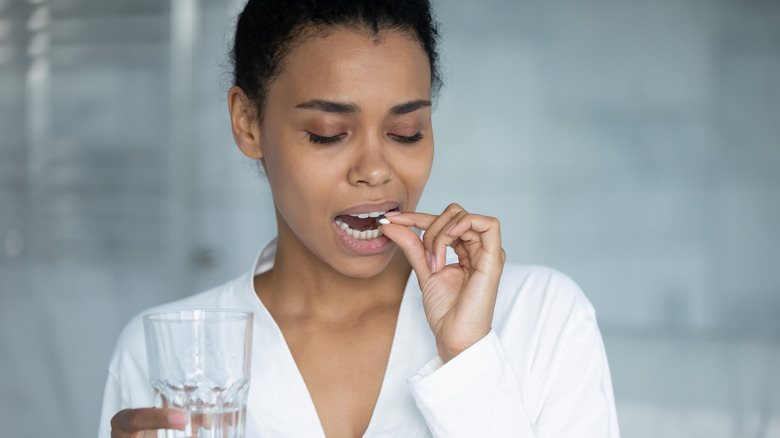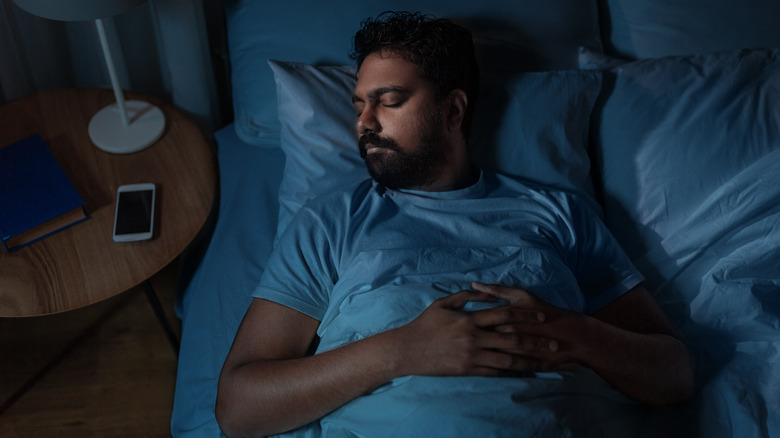Melatonin May Be Doing More Harm Than You Think
If you take melatonin to help you fall asleep, you're not alone. According to a 2020 research paper published in JAMA, the prevalence of melatonin use has drastically increased since 2005. Melatonin is touted as a natural sleep aid, making it sound more appealing than other sleep aids, especially prescription aids. But there are important considerations to keep in mind.
First, it can help to understand that melatonin is a hormone your brain produces when it starts to get dark outside (via The National Center for Complementary and Integrative Health). However, when you use a phone, tablet, or laptop close to bedtime (especially in bed), you expose your brain to blue light, which interferes with melatonin production, according to the Sleep Foundation. Since blue light makes it harder to fall asleep, you might find yourself reaching for a bottle of melatonin to help induce sleepiness. But the next time you pop the lid, you may want to consider the risks.
Potential risks of taking melatonin
While melatonin is considered safe for most people, The National Center for Complementary and Integrative Health notes side effects include headaches, dizziness, nausea, and sleepiness. Additional safety concerns exist for older people, pregnant and breastfeeding women, those who may be allergic, and those taking other medications, as melatonin can cause interactions. While this supplement is also considered safe for children, extensive studies haven't been done on long-term use. One major concern for young populations using melatonin is its potential to affect hormonal development. And young people can experience the same symptoms as adults with the added risks of agitation, bedwetting, and increased evening urination.
The best way to get better sleep may be to establish better sleep habits. The Centers for Disease Control and Prevention recommends going to bed and waking up at the same time every day and removing electronic devices (including your phone) from the bedroom. Getting some form of physical exercise will also help you fall asleep quicker. Limiting heavy meals, caffeine, and alcohol before going to bed can also contribute to a better night's sleep.


